Category: Film
-

Abel Ferrara’s Battle with the Irrational
To watch the body of Abel Ferrara’s films, as I’ve tried my best to do over the last month and a half, is to see a man wrestling obsessively — sadomasochistically, even — with the Irrational. The stylized violence, the scenery-chewing performances, the gratuitous and exploitative female nudity — all are window dressing. What’s at stake here is nothing less than the very possibility of grace.
-
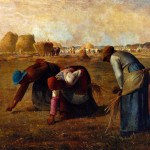
Calls to Conscience and Action
Varda, as much an essayist as filmmaker, explores gleaning as a hypertext of ideas: gleaning is an alternate economy; at times it’s a moral choice, at others a lamentable necessity; it’s both transgressive and communal; and, finally, it’s a metaphor for the artistic process itself.
-
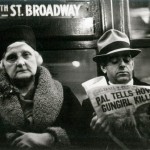
Code Unknown (2000)
“People’s faces are in naked repose down in the subway,” Evans tells us, but why should we believe him? I’m not sure that I do, and Haneke almost certainly doesn’t.
-
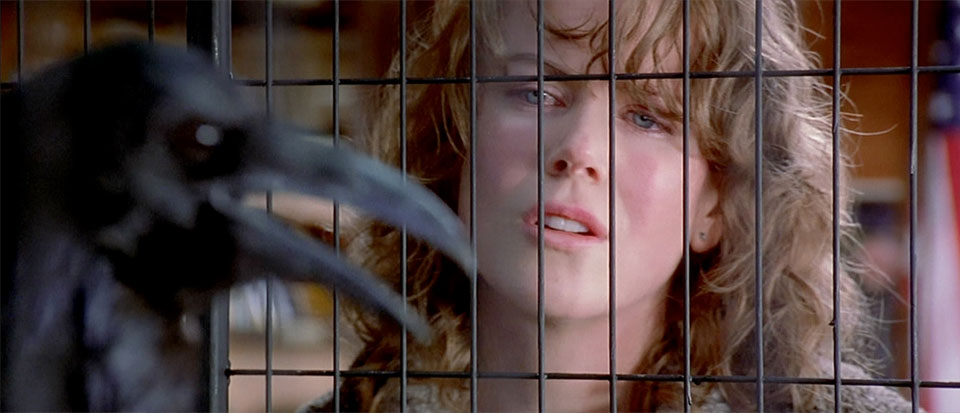
The Human Stain (2003)
But the adaptation of a written text to film also necessarily foregrounds the authority of images, imposing specificity on what an author might have chosen to describe more generally. I was surprised, for example, to find myself suddenly moved by an image of the small boxes in which Faunia stores the ashes of her dead children. In the novel, surprisingly little emphasis is placed on the ashes; Roth does not make of them an excuse for one of his patented ten-page diversions.
-

Showgirls (1995)
I can’t seem to find it now, but one of my all-time favorite Onion headlines is something like, “Area Man No Longer Able to Enjoy Ironically.”
-

Harry Potter and the Prisoner of Azkaban (2004)
Having already proven his deftness with coming-of-age stories, Cuaron (along with screenwriter Steven Kloves) understands that all the sound and fury of big budget spectacle signifies little unless it’s in the service of character, and so, here, the novel’s 400+ pages are neatly trimmed to show a single but significant stage of Harry’s development.
-

2006 Film Diary
A day-by-day viewing log of my filmwatching habits in 2006, beginning with Alfonso Cuarón’s Harry Potter and the Prisoner of Azkaban (2004) and ending with Jean-Luc Godard and Jean-Pierre Gorin’s Tout Va Bien (1972).
-

Welcome to Sarajevo (1997)
When I was aware of Winterbottom’s mise-en-scene at all, I was frustrated by its haphazardness — odd cuts are scotchtaped together by forced music cues, the camera jumps too often into the subjective perspective of unimportant characters (an after-the-fact narrative justification for Winterbottom’s use of a hand-held, I suspect), and the central story gets lost in the noise of several side-plots.
-

Best Films of 2005
Of the ten best new films I saw this year, eight were festival screenings, and, of those, only two have a reasonable chance of making it to a theater here in Knoxville. I mention that in passing as a reminder of how these year-end best lists are shaped by distribution and by the brand of popular American film criticism that still ghettoizes the vast majority of world cinema into a single, convenient category, “Foreign Language Film.”
-
Beau Travail and Britten’s Billy Budd
But the emotional effect of the music — on me, at least — is anything but ironic. In true Melvillian fashion, this is an epic battle of Drama and Meaning, the most epic battle, in fact, if we recall our fuzzy memories of the Christian symbolism that permeates Billy Budd. Granted, Denis strips away most of those symbols, but the central conflict of the film remains mostly unchanged.
-
You’re Tearing Me Apart!
Or, a few words about Nicholas Ray’s Born to be Bad (1950) and Rebel Without a Cause (1955).
-

Five Spiritually Significant Films
The fine folks at the Arts and Faith discussion forum have cast their votes, crunched the numbers, and released their second annual list of the Top 100 Spiritually Significant Films. In honor of their fine work, I offer my own obvious and predictable Top 5 list.
-

In a Lonely Place (1950)
What she whispers to him is less important than the unexpected moment of silent intimacy shared between these two lovers in a crowded, noisy room. The whole film is in that image — Dix bowing his head to her as a gesture of trust; Laurel closing her eyes in hope of love, then opening them to the sight of a detective entering the room.
-

Diving Deep into Caveh Zahedi’s In the Bathtub of the World
This essay was presented at the 2005 conference of the South Atlantic Modern Language Association.
-
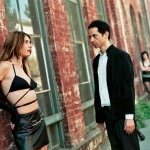
I Am a Sex Addict (2005)
In the opening shot, Zahedi addresses the camera directly, introduces himself as Caveh, and tells us that for many years he was a sex addict. His film is a frank, neatly-plotted, and curiously moving recreation of those years. It’s also incredibly transgressive and very, very funny. Quite a balancing act.
-
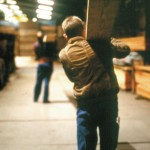
Fifteen for Fifteen
In celebration of its 15th anniversary, the IMDb has invited its editorial staff to submit their Top 15 Lists: 1990-2005. Never one to pass up an opportunity to obsess for a few days over such a challenge, I’ve put together a list of my own — a list joyfully free of editorial imposition, meaning that I can stretch and/or ignore even the most basic criteria/rules.
-
Boring Art Films
I just stumbled upon a review of Un Couple parfait that calls it the “quintessential Boring Art Film.” I have no qualms with this particular critic. In fact, he and I are often in agreement. All of which makes me wonder, Why do I love Boring Art Films?
-

Le Temps qui reste (2005)
I hadn’t planned to write about Le Temps qui reste, but then, while typing up notes this morning, I tripped over this line from E.L. Doctorow’s The Book of Daniel: “My sister and I can never inflict total damage — that is the saving grace. The right to offend irreparably is a blood right.”
-
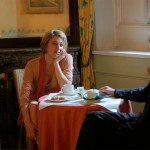
Un Couple parfait (2005)
Look closely at the image above. It’s Un Couple parfait in miniature — a story told in body language.
-
And Then There Were None
A friend’s line last year was, “Thank God there are no more movies. I wish there were more movies.” That about sums it up, I’d say. A last batch of first impressions.
-
Movies, They’re Everywhere, Man. EVERYWHERE!
Last Thursday, Girish introduced me to a friend of his, a Toronto native who had just returned from Montreal, where he had seen 54 films at that festival. He had another 45 tickets in hand for TIFF. I don’t get it. I just left my 31st film (I think), and I’m exhausted. Completely.
-
Losing Touch with Reality
I haven’t decided if the quality of films is improving or if I’m simply developing calluses to sentimentality and failed ambitions, but I’ve seen several good films (though few great ones) since my last update — and not a dud in the lot.
-
The Very Best Intentions
After three days, 14 films, a brilliant Sufjan Stevens concert, several fantastic meals, and too little sleep, I’ve abandoned my ambitions of blogging a brief capsule review of everything I see. There’s too little time, and I don’t want my TIFF experience to be hampered by blog guilt. Instead, here are some brief comments — first impressions and unsupported opinions, mostly.
-
Blogging TIFF
I have tickets for 44 films this year, plus a ticket to Sufjan Stevens’ sold out concert at the St. Paul’s Centre. 44 tickets. It’s absurd. But with a 50-film festival pass, I decided to schedule as many as possible, knowing that I’ll end up skipping a handful along the way.
-
Christmas Morning
The plan is to spend the next few hours poring through the catalog, obsessing over the schedule, and checking titles off of my spreadsheet — yes, I created a spreadsheet — all in hopes of creating the most efficient and dud-free lineup of films possible. I then overnight my ticket requests back to Toronto and hope for the best.
-
A Few Words on . . .
Week in Review: Black Rebel Motorcycle Club, John Vanderslice, DeLillo, Hornby, Jarmusch, and The Battle of Algiers
-

Week in Review
With apologies to Nick Hornby. While reading The Polysyllabic Spree, a collection of his “Stuff I’ve Been Reading” columns from The Believer, two things occurred to me.
-
Dreaming of Movies
I had my first TIFF-related dream last night. It was kind of like that dream where you show up for a final exam after skipping class all semester, except that, instead of sliding into a strange classroom, I was wandering around Toronto with no tickets because I’d forgotten to submit my out-of-town form. I woke up feeling anxious.
-
What Are We Talking About?
I got the sense that this guy was accustomed to being the most knowledgeable (or at least the loudest) guy in the room, so I was content to let him talk until he ran out of steam, hoping all the while that Joanna would wander back in our direction or that a meteor would destroy the apartment complex across the street. Anything that would give us an excuse to change the subject.
-

The Great Films, Part 1
In a deliberate effort to beef up my cinephile cred, lately I’ve been loading my GreenCine queue with selections from the list of 1,000 Greatest Films compiled by the folks at They Shoot Pictures.